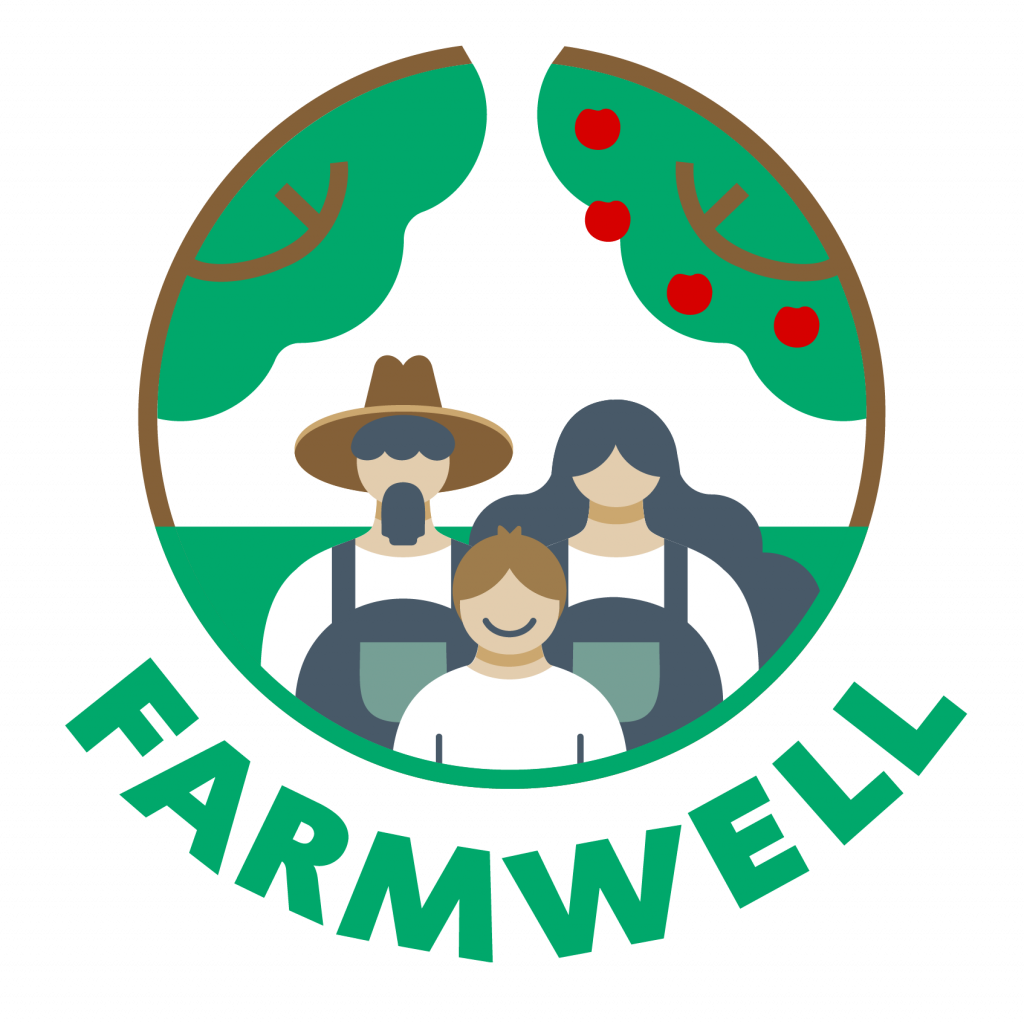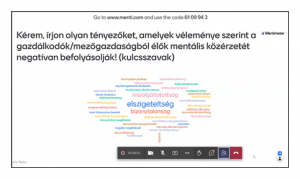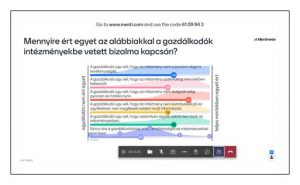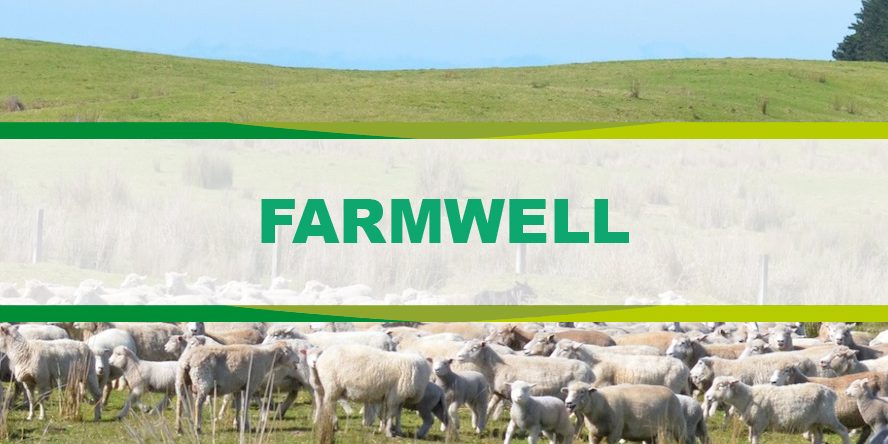
As part of the FARMWELL project, the first workshop of the “Practice Group” (PG) was held on the 22nd of June 2021. The aim of the online workshop i.e. the group of farmers, policy-makers, and representatives of advocacy groups was to identify and discuss the challenges impacting the well-being of farmers, especially those identified as key areas in the informal meeting held at the beginning of May, namely the topics of health, mental well-being, social relationships and trust.
Firstly, the consortium leader of the FARMWELL project, Edina Ocskó, the head of the E40 Group European Economic Association, then the host of the event, Dr. Pál Goda, the managing director of the Institute of Agricultural Economics (AKI), greeted the participants. On behalf of the other Hungarian partner, the Hungarian Social Farm Association, the president of the association, László Jakubinyi, also welcomed the members of the meeting. Afterwards, Viktória Vásáry, Katalin Rácz, Eszter Hamza and Csaba Bálint, employees of AKI’s Social Research Department, presented the results of the mapping exercise based on literature review, analysis of secondary statistical data and interviews.
The situation analysis covered the sociodemographic characteristics of people making a living through agriculture, some aspects of education and training, and the issues of generational change, and then the most important results related to the health status, mental well-being and social participation of farmers were presented in greater details.
 Following the presentation of the situation analysis, with the help of the interactive presentation application MENTIMETER the joint work was started, the aim of which was to validate the results based on statistical analyses and interview results, as well as to answer questions related to the three topics. The members of the group connected to the online questionnaire via their mobile phones or computers, in which they answered each question simultaneously, anonymously. The evaluated results were immediately visible on the shared screen, represented by graphs, text boxes, and word clouds. Participants also shared their opinions or asked questions about the results aloud by unmuting the microphone or writing in the chatbox. The results of the workshop could be summarized as follows:
Following the presentation of the situation analysis, with the help of the interactive presentation application MENTIMETER the joint work was started, the aim of which was to validate the results based on statistical analyses and interview results, as well as to answer questions related to the three topics. The members of the group connected to the online questionnaire via their mobile phones or computers, in which they answered each question simultaneously, anonymously. The evaluated results were immediately visible on the shared screen, represented by graphs, text boxes, and word clouds. Participants also shared their opinions or asked questions about the results aloud by unmuting the microphone or writing in the chatbox. The results of the workshop could be summarized as follows:
According to the PG members, farmers in Hungary put less emphasis on maintaining their health than average (2.6 on a scale of 1-5). The most common types of disease among farmers are cardiovascular diseases, musculoskeletal diseases, obesity and nutritional diseases, and addictions. Participants identified overload, anxiety (due to financial situation, market or weather risks, risks originating from succession), stress, difficulties in accessing the health care system, and unhealthy eating habits as the most important risk factors influencing the health status of farmers. Some ideas were also put forward as a solution: mobile health screening station, financed screening tests, “farm doctor” service, psychological and mental health counselling specifically for farmers.
Among the factors negatively affecting farmers’ mental well-being, members mentioned isolation, monotony of work, unpredictability and insecurity, lack of recognition and respect, and lack of time spent relaxing and resting. As a solution, the participants highlighted the strengthening of cooperation, the development of local communities, and the improvement of farmers’ self-esteem (e.g. by participating in public catering or school garden programs). Helping farmers to relax and go on holiday by providing services that replace the farmer was also proposed.
 Finally, members identified factors such as over-regulation of the economic environment, delays in the payment of subsidies, lack of contractual discipline in business, unpredictable business partners, excessive administrative burdens and bureaucracy in the administration and support system, legislation that is not transparent and difficult to interpret, which weakened farmers’ trust in their own human and institutional environment. In order to strengthen the trust of farmers in their own environment, the participants suggested, for example, helping stakeholders becoming part of a community of interest, increased professional support from the National Chamber of Agriculture and other interest groups, and expanding and developing information networks.
Finally, members identified factors such as over-regulation of the economic environment, delays in the payment of subsidies, lack of contractual discipline in business, unpredictable business partners, excessive administrative burdens and bureaucracy in the administration and support system, legislation that is not transparent and difficult to interpret, which weakened farmers’ trust in their own human and institutional environment. In order to strengthen the trust of farmers in their own environment, the participants suggested, for example, helping stakeholders becoming part of a community of interest, increased professional support from the National Chamber of Agriculture and other interest groups, and expanding and developing information networks.
The short summary proves, that the workshop provided a vast array of useful information for the FARMWELL project. The joint work will continue, the next program is a farm visit to learn about good practices, expected to be organized in September 2021.



 HU
HU




